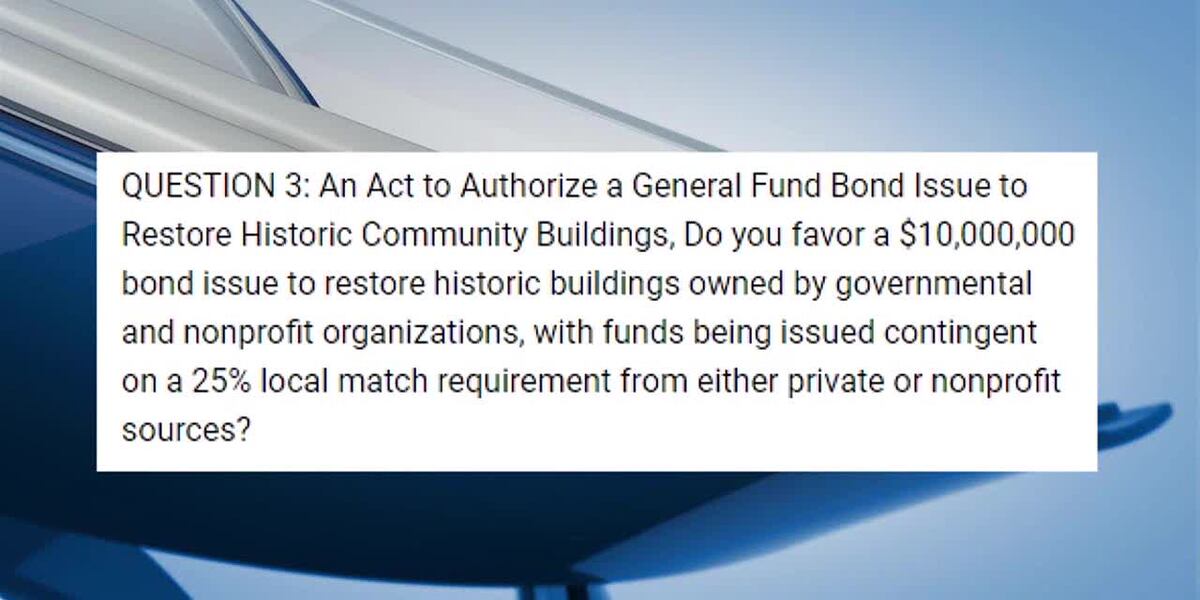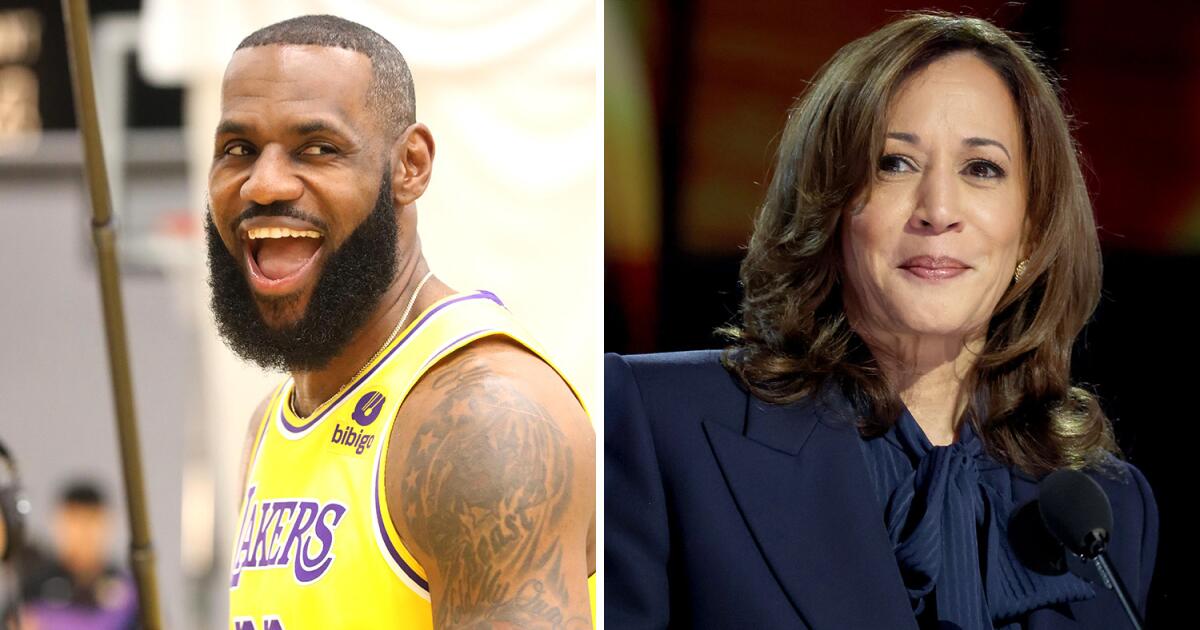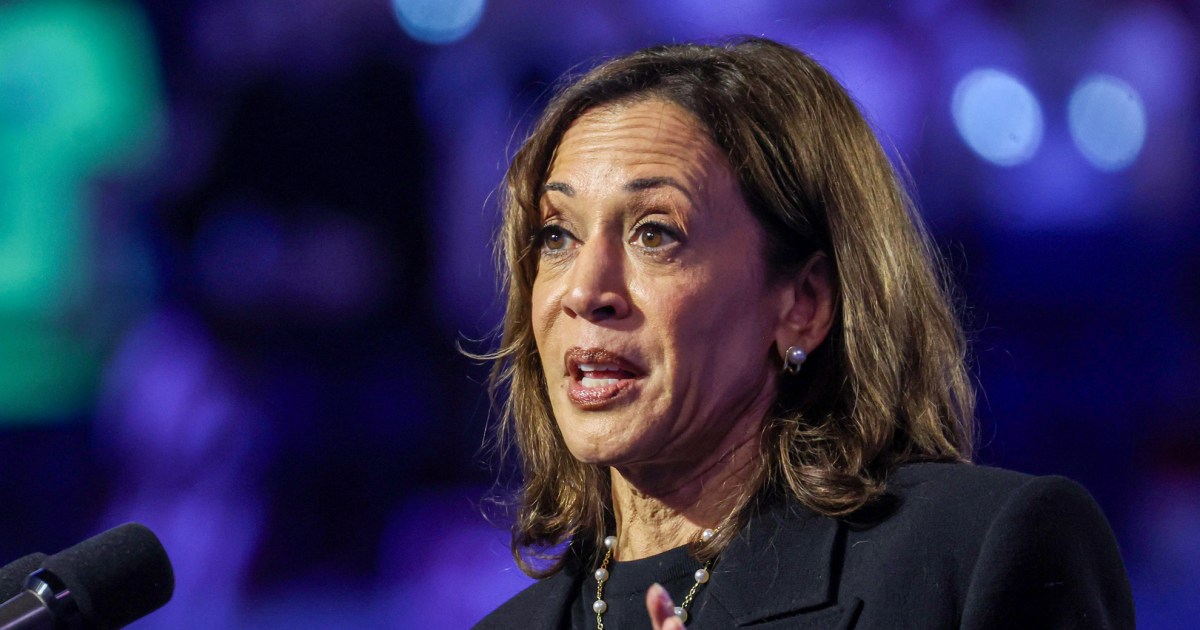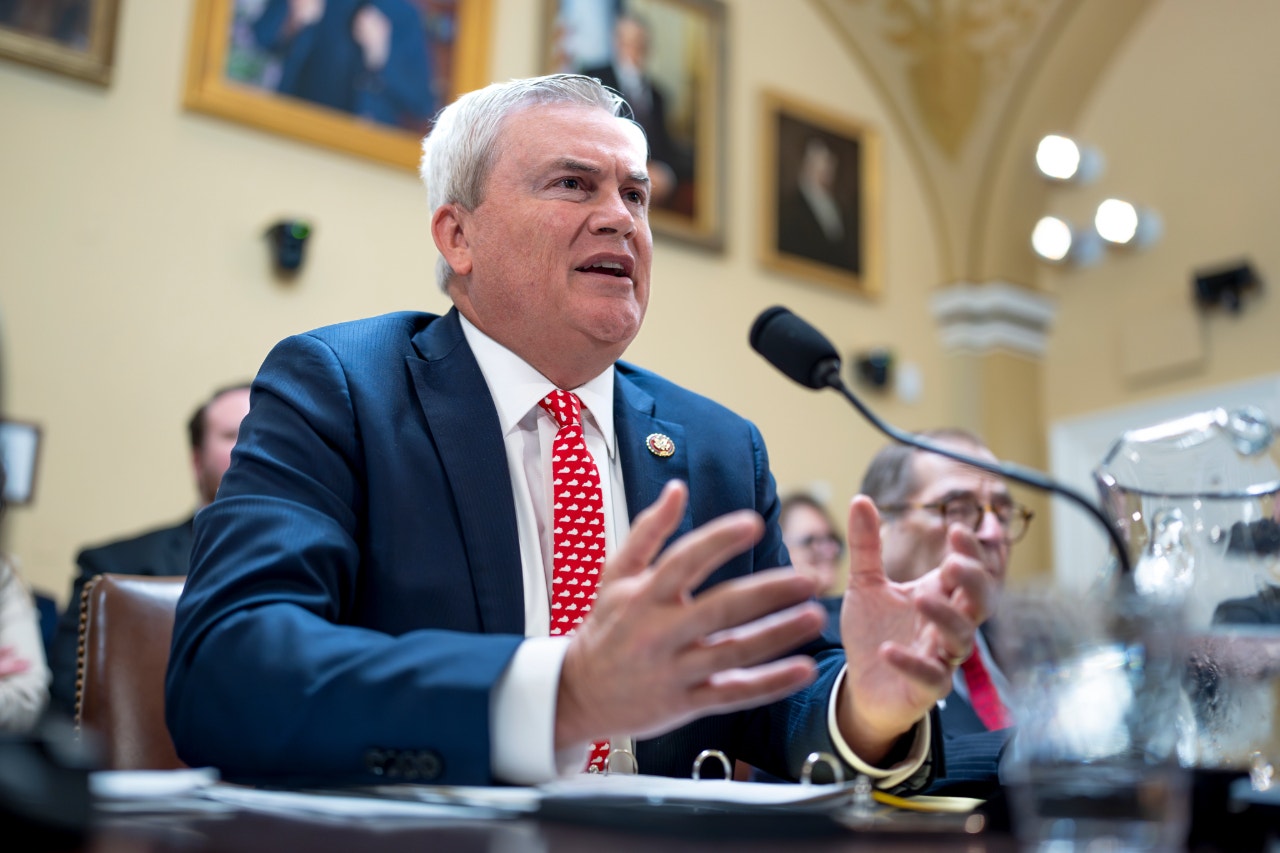World
Progressive Arevalo leads in poll ahead of Guatemala presidential election
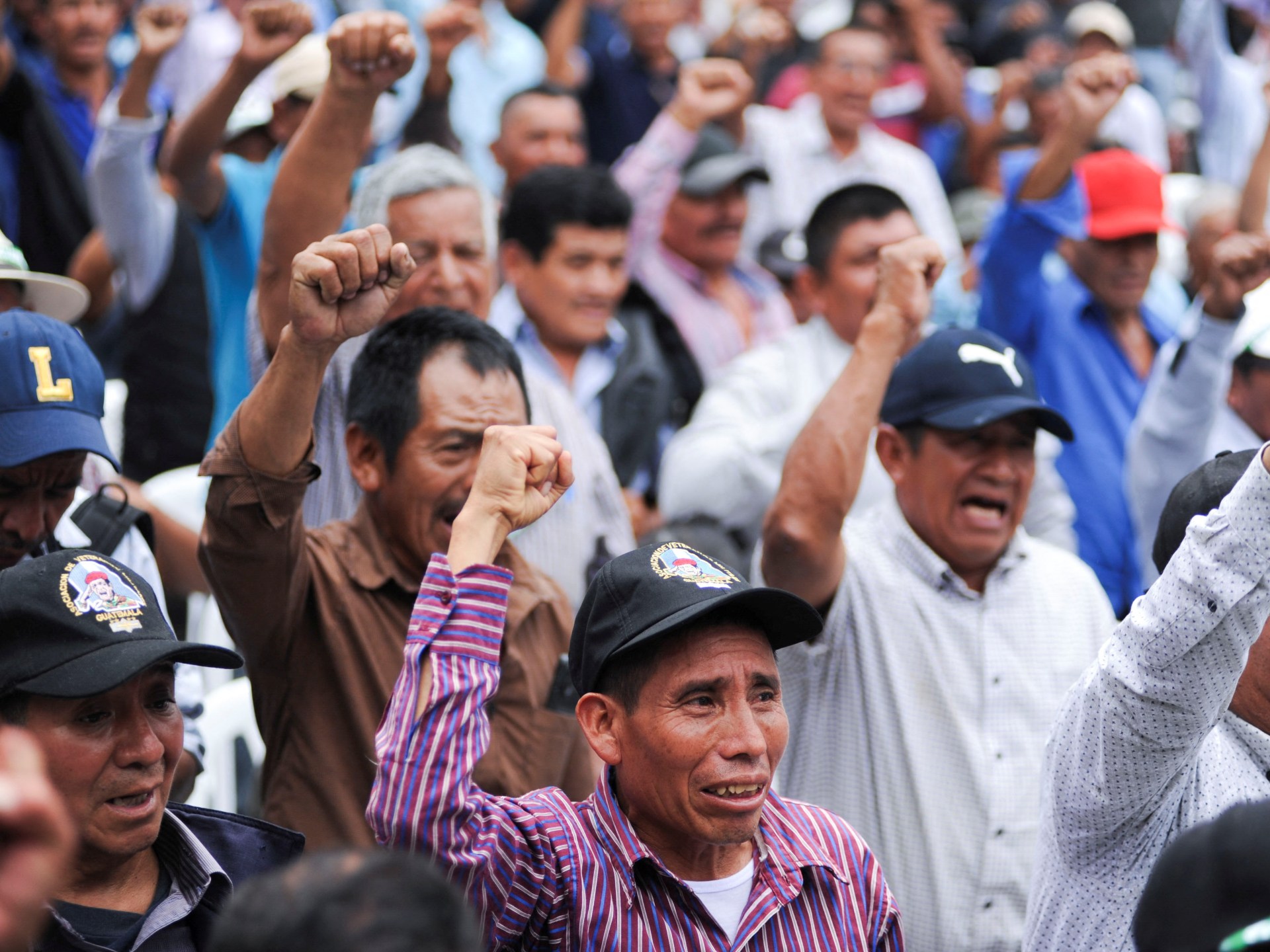
A survey from CID Gallup shows Bernardo Arevalo surging ahead of conservative rival Sandra Torres in the lead-up to Sunday’s vote.
A new public opinion poll released days ahead of Guatemala’s presidential race indicates former dark-horse candidate Bernardo Arevalo is heading into the vote with a healthy lead.
Arevalo, a candidate for the progressive Movimiento Semilla or Seed Movement, is projected to win by 61 percent, according to a survey published on Wednesday by the research firm CID Gallup.
Such a victory would mark a major upset over early frontrunner Sandra Torres, a former first lady representing the conservative party National Unity of Hope (UNE).
Torres and Arevalo are set to go head-to-head in a run-off election on August 20, the culmination of a bumpy presidential race rocked by fears of political interference.
On June 25, Arevalo surprised the political establishment with an unexpectedly strong finish in the first round of voting.
The son of Guatemala’s first democratically elected president and a member of Congress himself, Arevalo scored 11.8 percent of the vote, a total only surpassed by Torres at 15.7 percent. No other candidate polled higher than 8 percent.
That result propelled Arevalo and Torres to Sunday’s run-off. But in the aftermath of Arevalo’s first-round success, rival parties questioned whether the vote tally was accurate, appealing to the court system for a review.
That proceeding ultimately upheld the results — but on the same day that the election tribunal certified the vote, the Attorney General’s Office successfully petitioned a court to suspend Arevalo’s Seed Movement.
Prosecutors claimed that 5,000 signatures used to form the party had been fraudulent.
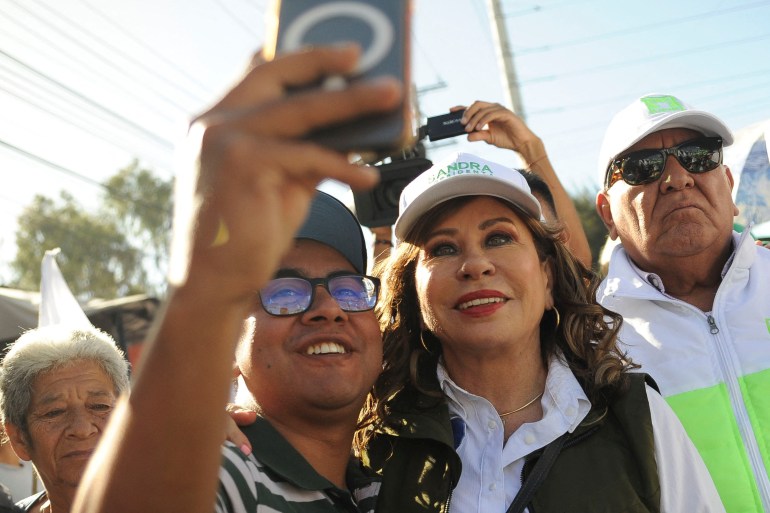
Legal experts quickly denounced the move as a violation of Guatemalan law, which prohibits suspending a party’s legal status in the midst of an ongoing election. And the country’s Constitutional Court ultimately reversed the lower court’s suspension.
But the Attorney General’s Office has continued to take action against the Seed Movement, ordering police to raid the party’s offices for evidence.
Police raids have also targeted the Supreme Electoral Tribunal, the country’s election authority. The tribunal ultimately requested an injunction against the Attorney General’s Office to ensure the election’s integrity.
The Guatemalan government has long contended with allegations of corruption, as prosecutors have pursued prominent journalists, judges, lawyers and public accountability advocates on what critics consider trumped-up charges.
The country’s attorney general, Maria Consuelo Porras, has herself been sanctioned by the United States “due to her involvement in significant corruption”.
“During her tenure, Porras repeatedly obstructed and undermined anticorruption investigations in Guatemala to protect her political allies and gain undue political favour,” US Secretary of State Antony Blinken said in a statement.
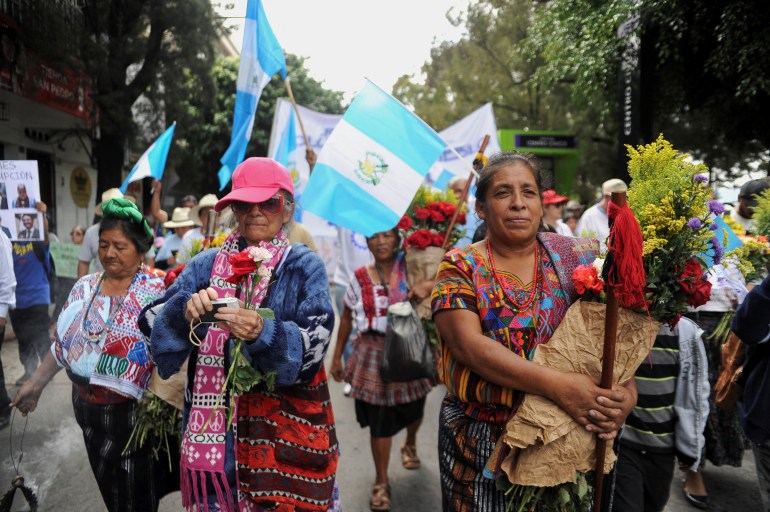
Corruption has emerged as one of the central issues in the 2023 presidential campaign, with Arevalo positioning himself as a champion of the anti-corruption movement.
Torres, meanwhile, has pushed a platform based on greater government transparency. But she too has faced corruption allegations in the past and was briefly arrested in 2019 on suspicion of campaign finance violations. A judge eventually dismissed the case.
Wednesday’s CID Gallup poll found that 52 percent of Guatemalans surveyed were optimistic that the country would improve under his leadership, whereas only 6 percent said the same of Torres.

World
Orbán's meeting with FPÖ leaders in Vienna sparks controversy
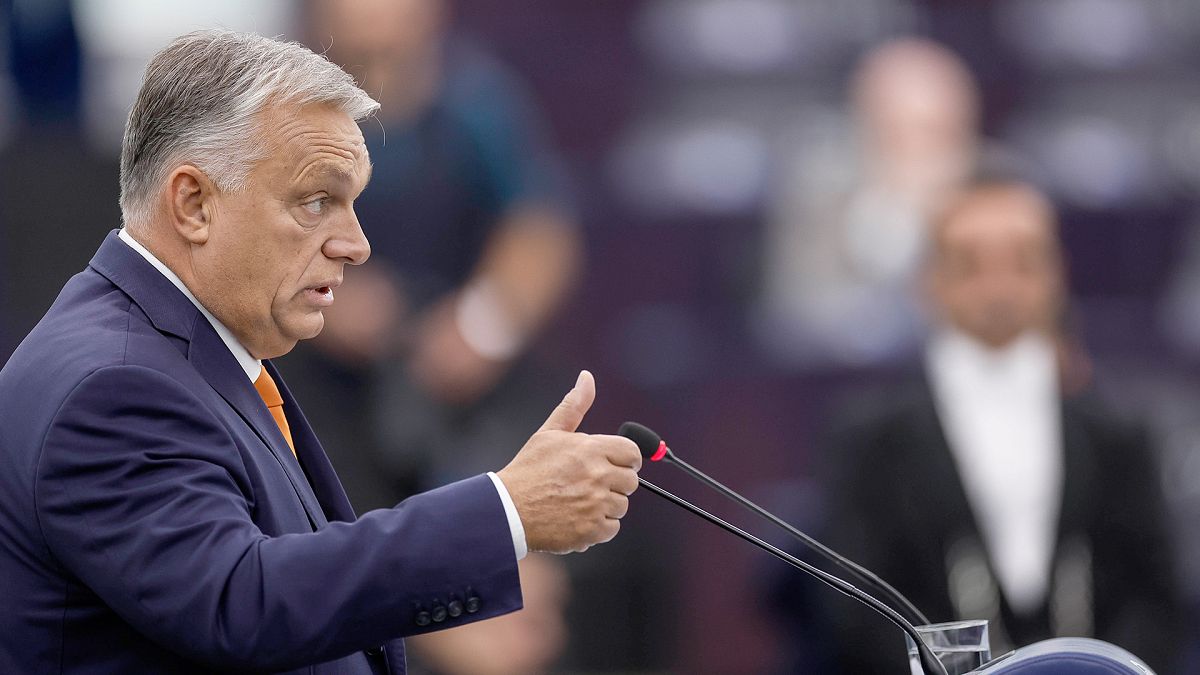
The Hungarian prime minister arrived in Vienna on Thursday, where he was received by parliamentary president Walter Rosenkranz in a meeting condemned by several Austrian political parties.
Despite criticism from other political parties, Austria’s newly elected parliament president, Walter Rosenkranz of the far-right Freedom Party (FPÖ), hosted Hungarian Prime Minister Viktor Orbán in Vienna as his first official guest.
The controversial visit took place in the Austrian parliament’s reception room, with the entire leadership of the FPÖ, including leader Herbert Kickl, reportedly in attendance.
After the meeting concluded, Orbán had a separate, private meeting with Kickl. However, nothing was initially revealed about the content of their conversation.
Rosenkranz said the meeting had been arranged before he took office.
Other Austrian parties, including the Greens and Social Democrats, had resisted Orbán’s visit. Green party parliamentary leader Sigrid Maurer said the FPÖ views Orbán as a role model, which should be considered “an absolute warning signal.”
FPÖ finished first in the recent Austrian parliamentary elections, garnering 29.2% of the vote in the country’s first far-right election win since World War II.
Experts say the party managed to tap into Austrian anxiety on housing and healthcare, as well as often successfully blaming migration for a host of other issues.
As is customary within Austria, the group with the highest number of votes appoints the President of Parliament – hence Rosenkranz being elected to the second-highest state office in the country last week.
Orbán will reportedly not meet with Austrian Chancellor Karl Nehammer during the visit.
Far-right alliance in Europe
Austria’s Freedom Party and Orbán’s Fidesz party both belong to the new European far-right group Patriots for Europe.
The party shares a deep aversion to the Green Deal, EU Commission President Ursula von der Leyen’s flagship initiative to achieve climate neutrality by 2050, and have challenged the project of European integration as well as the power granted to EU institutions.
Patriots for Europe are also opposed to providing Ukraine with military equipment, question the efficiency of Western sanctions against Moscow and want to maintain close relations with Russian President Vladimir Putin and his government.
It is the third-largest group in the European Parliament, boasting dozens of MEPs from countries like France, Italy and the Netherlands.
World
Analysis-US Crypto Industry Expects Friendlier Washington, Whoever Wins White House
World
Iran and Russia close in on deal as Tehran threatens revenge against Israel
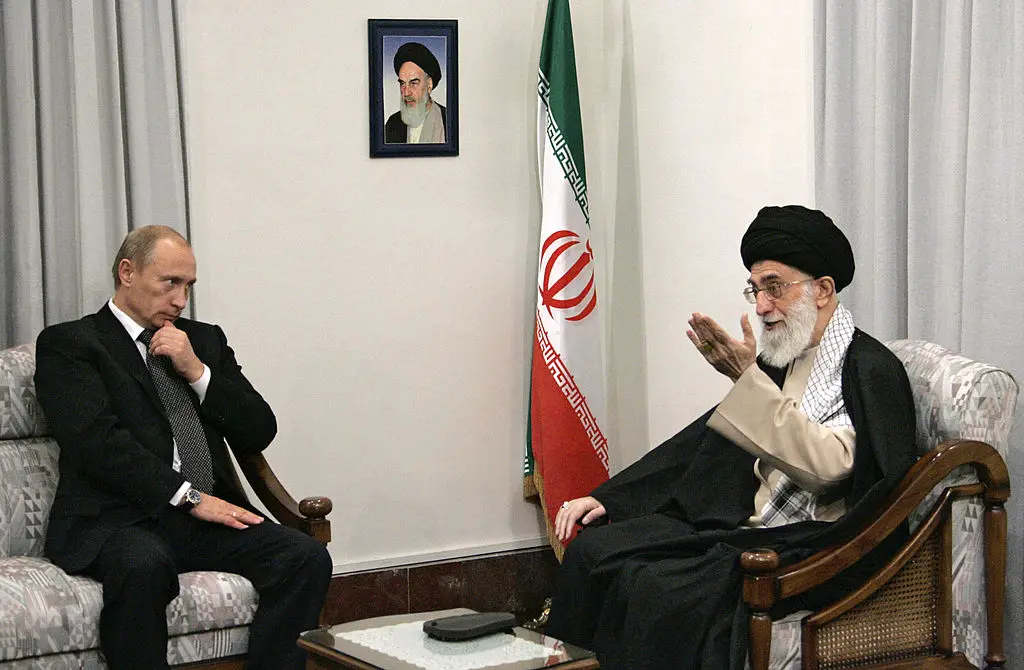
Iran and Russia are closing in on a deal that will bolster their defensive cooperation and strengthen military ties at a time when Western nations are increasingly concerned about regional wars in Europe and the Middle East.
“The treaty on a comprehensive strategic partnership between Russia and Iran that is being prepared will become a serious factor in strengthening Russian-Iranian relations,” Russian Foreign Minister Sergei Lavrov said on Thursday, according to a Reuters report.
The foreign minister, who said the treaty would be signed “in the near future,” claimed that the deal will “confirm” both Iran and Russia’s “interests of peace and security at the regional and global levels.”
President Vladimir Putin shakes hands with Iranian President Masoud Pezeshkian during a meeting on the sidelines of the BRICS summit in Kazan, Russia, Oct. 23, 2024. (Reuters/Maxim Shemetov/Pool)
PENTAGON SAYS IRAN SUPPLYING RUSSIA WITH BALLISTIC MISSILES
The details of the treaty remain unclear and Lavrov did not expand on what form this defensive partnership would take.
A similar agreement signed between Russia and North Korea earlier this year was followed by Pyongyang’s decision to send some 10,000 soldiers to its warring neighbor, which may potentially be deployed to fight in Ukraine, according to concerns signaled by the Pentagon.
But given that Iran already supplies Russia with defensive aid to propel its brutal war in Ukraine, it’s not only the repercussions this partnership could have for the war in Europe that concern Western security officials.
Russian President Vladimir Putin, who once shared a solid relationship with Israeli Prime Minister Benjamin Netanyahu, has not appeared to be overtly involved in the unfolding fight in the Middle East, unlike Russia’s top adversary, the U.S.
But a report by the Wall Street Journal earlier this month found that Moscow has been providing the Houthi terrorist group with satellite data to assist it in its repeated attacks on Western ships in the Red Sea. According to the report, the information was passed from Russia to “members of Iran’s Islamic Revolutionary Guard Corps (IRGC)… embedded with the Houthis in Yemen.”
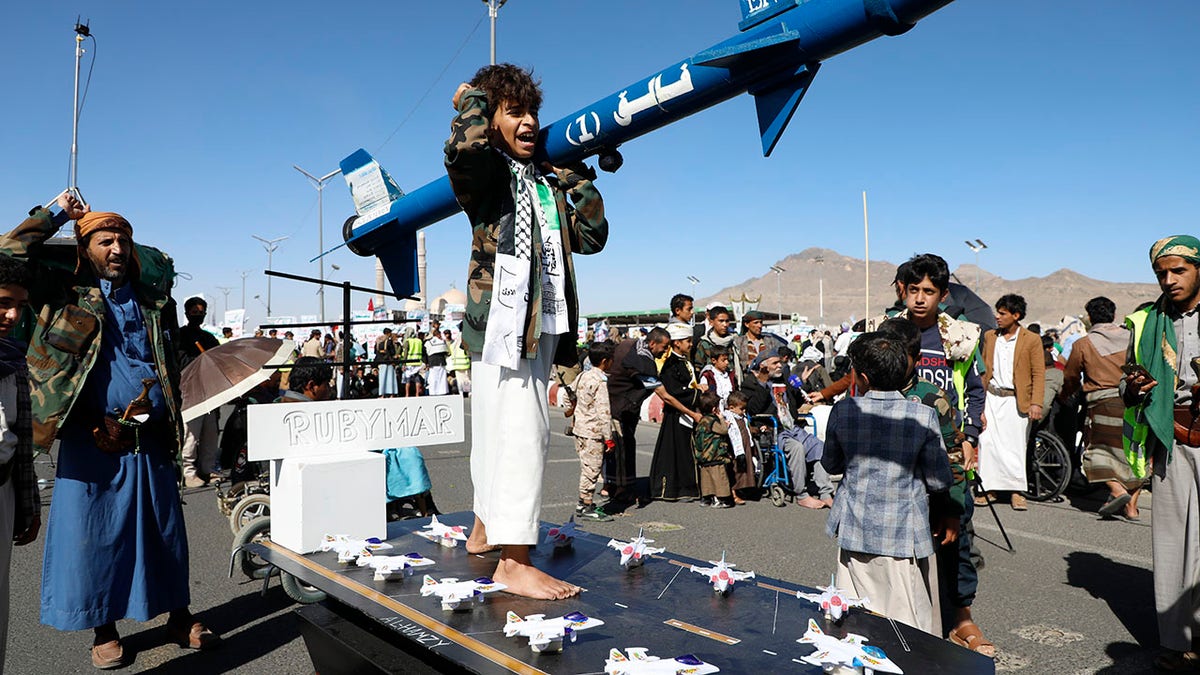
Houthi supporters attend a rally against the U.S.-led strikes on Yemen and Israel’s war in Gaza Strip, in Sanaa, Yemen, on Feb. 23, 2024. (AP/Osamah Abdulrahman)
PENTAGON THREATENS NO NEW LIMITS ON UKRAINE WEAPONS IF NORTH KOREA JOINS RUSSIA’S WAR
Russia has also increasingly called on Israel to show “restraint” when it comes to escalating tensions in the Middle East as it launched an incursion into Lebanon and struck Iran – which directly funds and arms the terrorist organizations, including Hamas, Hezbollah and the Houthis, warring with Jerusalem.
Tehran has once again threatened Jerusalem with a retaliatory hit after Israel launched aerial strikes on Friday. The series of tit-for-tat attacks continue as Israel pushes to eliminate Hamas in the Gaza Strip and Hezbollah in Lebanon.
Lt. Gen. Herzi Halevi, chief of the general staff of the Israel Defense Forces (IDF), on Tuesday responded to these threats and said, “If Iran makes the mistake of launching another missile barrage at Israel, we will once again know how to reach Iran.”
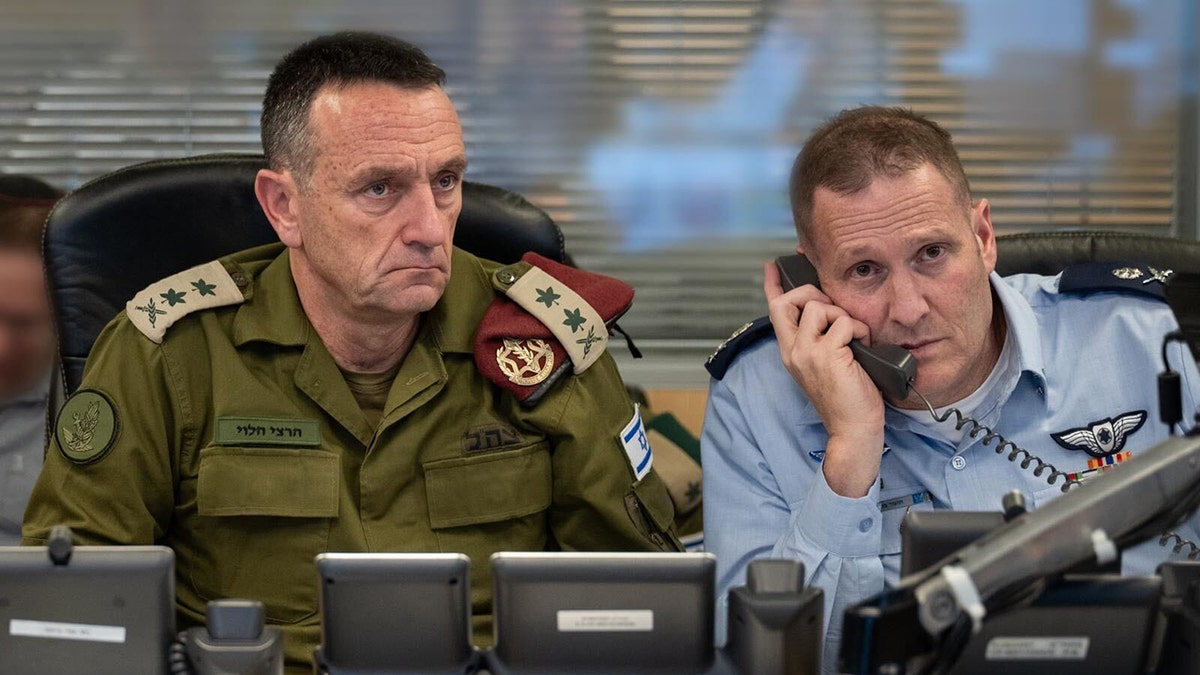
Lt. Gen. Herzi Halevi, chief of the general staff of the IDF, commands the strike on Iran from Camp Rabin, with the commanding officer of the Israeli Air Force, Maj. Gen. Tomer Bar. (IDF)
Halevi warned Israel will continue to escalate its attack “capabilities and locations” previously “set aside” if Iran responds with another strike on the Jewish state.
“We did this for a very simple reason, because we may be required to [strike] again. This event is not over, we are still in the midst of it,” he said while speaking from the Ramon Airbase in Israel. “I say this to you: we are highly prepared across all fronts.”
-

 Movie Reviews1 week ago
Movie Reviews1 week agoAlien Country (2024) – Movie Review
-
/cdn.vox-cdn.com/uploads/chorus_asset/file/25431700/STK201_SAM_ALTMAN_CVIRGINIA_A.jpg)
/cdn.vox-cdn.com/uploads/chorus_asset/file/25431700/STK201_SAM_ALTMAN_CVIRGINIA_A.jpg) Technology7 days ago
Technology7 days agoOpenAI plans to release its next big AI model by December
-

 Health6 days ago
Health6 days agoNew cervical cancer treatment approach could reduce risk of death by 40%, trial results show
-

 Culture7 days ago
Culture7 days agoTop 45 MLB free agents for 2024-25 with contract predictions, team fits: Will Soto get $600M+?
-

 Sports5 days ago
Sports5 days agoFreddie Freeman's walk-off grand slam gives Dodgers Game 1 World Series win vs. Yankees
-
News5 days ago
Sikh separatist, targeted once for assassination, says India still trying to kill him
-

 Culture4 days ago
Culture4 days agoFreddie Freeman wallops his way into World Series history with walk-off slam that’ll float forever
-

 Technology4 days ago
Technology4 days agoWhen a Facebook friend request turns into a hacker’s trap




